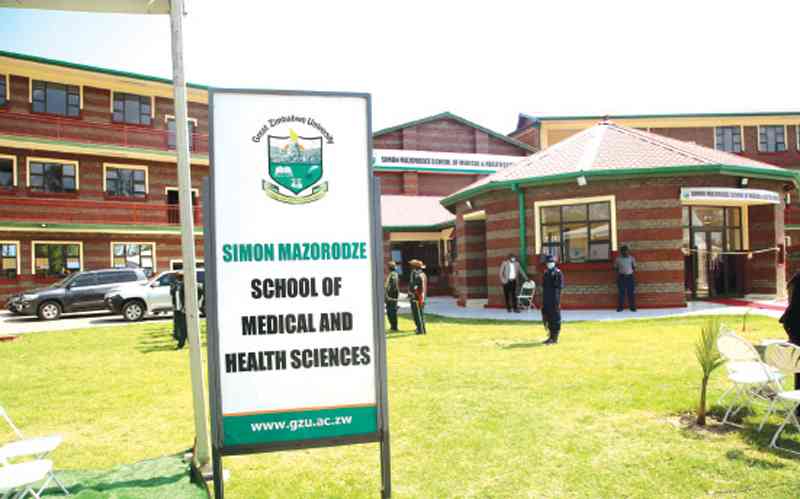
Last Tuesday Zimbabwe marked its 43rd independence anniversary and what a day it was as the country lined up a plethora of festivities to celebrate the day.
Zimbabwe boasts of close to 60 minerals, which include diamond, gold, platinum, coal, iron and lithium, among others.
However, the health service in the country has not been profound as some pillars of the 2007 World Health Organisation framework of health service delivery have been dribbled down.
Both the public and private medical practitioners have stood tall to deliver their best services to the masses despite limited resources.
The country has done well on some areas where prophets of doom thought we were going to be decimated.
Today, HIV prevalence sits at 12.9%, down from as high as 26.5% in 1997 and this shows the dedication the country holds in the fight against the deadly virus.
More than 1,2 million Zimbabweans have access to anti-retroviral therapy today and all corners of the country have adequate stocks of the life-saving drugs.
The country should be applauded for the hard work. Tuberculosis and malaria have been a menace globally and it is good news to hear that mortality from malaria in the last 10 years has reduced by close to 67%.
- Another ETF lists on ZSE
- Econet to use Buddie Beatz app to grow local music
- Edutainment mix: The artist in the child policy formulation context
- An unsung HIV/Aids hero spreads message of hope
Keep Reading
Government has made sure there are enough stocks of the much needed anti-malarial drugs like Co-artem, Artesunate after chloroquine and Fansidar resistance in the years 2000 and 2004 respectively.
Covid-19 came with a bang, taking many lives but the country stood firmly with great cooperation between the public and the private sectors. According to Worldometer as of April 19, the United States lost at least 1 158 347 people, Brazil 700 811, United Kingdom 209 396, Spain 120 606 while Zimbabwe lost 5685 to Covid-19.
Resource hindrance did not culminate in untold mortality. It is often the small steps, not the giant leaps that bring about the most lasting change.
The year 2022 saw Masvingo Province receiving a gift from government in the form of a medical school, Great Zimbabwe School of Health Sciences. The medical school becomes the fourth doctors’ training college in the country and has already opened its doors with the first intake of 20 students having already commenced lessons.
Congratulations to Professor Jacob Mufunda, the illustrious dean of medicine at the medical school, who has nurtured many doctors in the country.
Zimbabwe opened its first medical school in 1963 at the University of the then Rhodesia in collaboration with Birmingham University in the UK.
Thousands of doctors have been trained, alas; many health facilities are grossly understaffed.
There is rampant brain drain for greener pastures with the United Kingdom being at the forefront of recruitment as nurses, social workers; nurse assistants are leaving in droves for better-paying countries. The last four months saw more than 4 000 health care workers leaving the country for the so-called greener pastures.
It is a pity that many of our workers are treated as slaves in foreign countries with unbearably long working hours, lack of intrinsic, extrinsic, external and introjected motivation.
Many health care workers have been grumbling back home because of astonishingly low salaries, poor working conditions, obsolete equipment, demotivation, low staff morale which have significantly reduced worker zeal in clinics and hospitals.
The problems are perennial and it is not a secret that government is failing to timeously address the unfortunate developments. The consequences are dire with increased morbidity and mortality. National Development Strategy puts health as a priority, but achieving universal health coverage is a mountain to climb without addressing the fundamentals of health service delivery.
Health funding has not been as robust as expected with finances falling far short of the minimum expected.
The Abuja Declaration of 2000 stipulates that for a sound health system to be in place, at least 15% of the national budget should be allocated to the health sector.
The 2022 national budget of Zimbabwe allocated 10.6% to the health sector while 2023 budget increased slightly to 11.2%.
Considering the health quagmire the country is in, the allocation is surely inadequate in the midst of outbreaks like Covid-19, cholera, typhoid and malaria.
The country cannot base its health viability on the unpredictable donors as they may dictate how their moneys are to be used.
The costs of running health institutions in Zimbabwe are unbearable with many licences being required. Regulatory bodies will be hunting for their licences while city councils will forage in all surgeries, clinics and hospitals.
Practitioners are left naked as they battle medical aid societies that do not honour claims in time. I wonder why the regulator continues to issue operating licences to errant medical aid societies, which are contributing to the collapse of the health delivery service in Zimbabwe.
Together, we will build Zimbabwe. We need to flex our hands for the betterment of our health as a nation!







